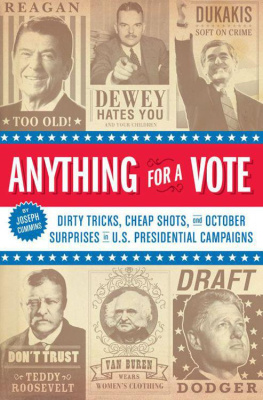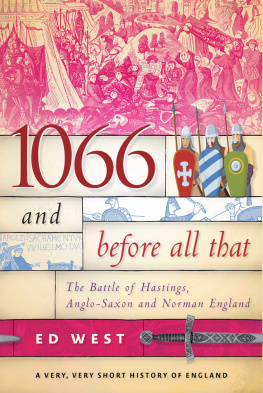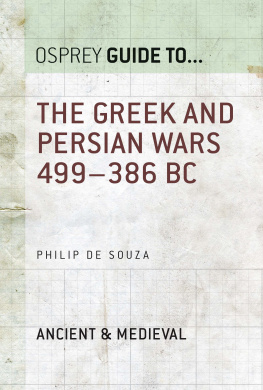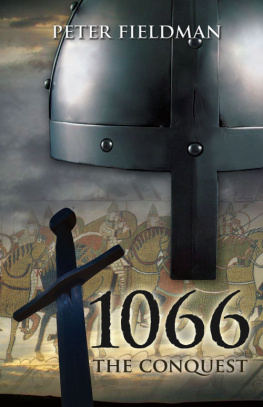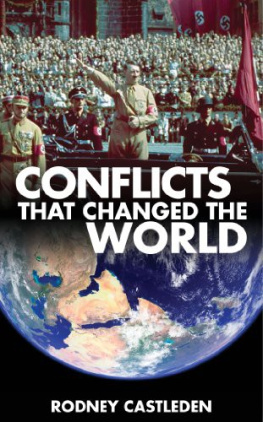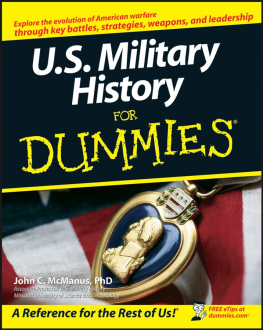HISTORYS
GREATEST
WARS
THE EPIC CONFLICTS THAT SHAPED THE MODERN WORLD
JOSEPH CUMMINS
AUTHOR OF WHY SOME WARS NEVER END

Text 2008, 2009 Joseph Cummins
This edition first published in the USA in 2011 by
Fair Winds Press, a member of
Quayside Publishing Group
100 Cummings Center
Suite 406-L
Beverly, MA 01915-6101
www.fairwindspress.com
All rights reserved. No part of this book may be reproduced or
utilized, in any form or by any means, electronic or mechanical,
without prior permission in writing from the publisher.
15 14 13 12 11 1 2 3 4 5
ISBN-13: 978-1-59233-471-1
ISBN-10: 1-59233-471-7
Digital edition published in 2011
eISBN-13: 978-1-61058-055-7
Digital edition: 978-1-61058-055-7
Softcover edition: 978-1-59233-471-1
Library of Congress Cataloging-in-Publication Data available
Cover design by Peter Long
Printed and bound in Singapore
CONTENTS
INTRODUCTION
All the wars included in this book are thunderous affairs, wars that Mars himself would be proud of. None of your three-day wonders or saber-rattling standoffs, but wars with meat to their bones, wars that took the world by the throat and shook it. Starting with the Greco-Roman Wars and moving on to the Soviet-Afghan War, each one of these twenty-five Historys Greatest Wars has been of extraordinary importance in making the world the place we find it today, for better and for worse. There is a reason for a book like Historys Greatest Warsits to remind us that we are born of fire and blood, shaped more by conflict than peace. War is rarely a surprise, only a shock.
The Greek victory against the Persians in the Greco-Roman War helped Greek culture and literaturethat all-important sense of the individuality and imperishability of the human spiritsurvive. The Punic Wars between Rome and Carthage, as savage as they were, gave those of us who live in the western world our civilization, law, money, and language. The Muslim conquests of the first millennium spread the message of Allah across what is now the modern Middle East and into North Africa and Spain, and the Crusades and the Spanish Reconquista fought to reclaim this lost territory (of both flesh and spirit) in the name of Christ, thus setting up violent religious dichotomies that exist to this day.
Bloody civil wars shaped France, the United States, China, and Russia, unleashing new forces. Some of these forces (the abolition of slavery and the overthrow of oppressive ancien rgimes) were positive, while others (the advent of totalitarianism in the Soviet Union and Maos China) were massively negative.
Covering twenty-five wars in a relatively short 300 pages means that one must focus on what is essential. Each chapter of this book covers a single war, and provides a quick overview, the detailed story of the most essential battle of the war, the biography of the most influential figure (or figures) of the conflict, and two or three short articles that cover diverse aspects of the conflict, from military innovations (which, in the Punic Wars, meant a fiendish little shipboard spike known as the corvus) to a description of one aspect of any particular warin the World War One chapter, for instance, Life in the Suicide Ditch gives a prcis on living in the trenches of the Western Front.
Aside from giving both an overview and more detailed depiction of each of these important, world-changing wars, what I have tried to do is bring clarity to my descriptions of both strategy and combat. The English word war comes to us from the Old English werre (and the Old French guerre). Both descend from the Old German werran, meaning worse, but there is also another Old German root variant, verwirren, which means to bring into confusion.
Wars are confusing affairs. Any authentic description of combat captures thisthe blast of gunfire (or deluge of spears); the screams of the wounded and dying; the sudden rushes and pell-mell retreats. Battles change, quite literally, ones perception of the world. When the young Goethe bravely and foolishly wandered through the midst of the pivotal Battle of Valmy during the French Revolutionary Wars, he saw the earth and sky colored by what he later described as a blood-red tint. The conceit of a romantic German poet? Yet sixty some years later, a Union soldier at the Battle of Antietam during the U.S. Civil War noticed the same phenomena under a hail of bullets and artillery firethe landscape turning red around him.
It is this type of detail that Ive sought to provide a soldiers eye view of the battles in Historys Greatest Wars, and Ive sought it as well when looking into the lives of the generals and leaders whose job it was to make clarity out of this confusion of war. Did Hannibal really swear a curse to destroy the Romans? Was Napoleon Bonaparte driven solely by egomania, or did he attempt in his own way to make a better world for the people of France? Just how did Hernan Cortez walk into the elaborate Mexica empire with a handful of soldiers and take it overand why did Montezuma allow him to? And how did Mao Zedong go from an awkward young man from the country, who loved spicy hot food and plump peasant girls, to the iron-willed revolutionary who proclaimed, We know that political power is obtained from the barrel of a gun?
Historys Greatest Wars: The Epic Conflicts that Shaped the Modern World offers a fresh approach that cuts through the confusion that has been aptly called (by Clausewitz) the fog of war and provides a fast-moving narrative of the conflicts that made us who we are today.
1
THE GRECO-PERSIAN WARS
500449 BCE
A LONG-RUNNING CONFLICT BETWEEN GREEK CITY-STATES AND THE PERSIAN EMPIRE, WHICH CULMINATED WITH THE GREEKS REPELLING A MAJOR PERSIAN INVASION
TURNING BACK THE PERSIAN TIDEAND SAVING A CIVILIZATION
Started in 559 BCE by Cyrus the Great, the Persian Empire arose rapidly out of the grasslands of what is now Iran. By 500 BCE, it was a domain that extended from Pakistan in the east, westward through Central Asia to Macedonia in the north, and to Egypt in the south. It was home to twenty million people, out of an estimated world population of one hundred million.
The Greeks spoke of the Persians as barbarians, but they were generally quite civilized. They established roads and fine palaces, brought peace to outlying areas, and introduced the worlds first large-scale coinage system. The Persian aristocracy adhered to knightly ideals of honor, courage, and chivalry. Persia was, however, an autocracy; even more significantly for its neighbors, the Persians believed that their ruler, whom they called the One King or Great King, governed all the worlds peoples.
In contrast, what is now the nation of Greece was divided into numerous city-states. Although they sometimes had fractious relationships with each other, these states shared a strong sense of a common kinship, as Greeks or Hellenes. Moreover, they shared a democratic spirit, permitting open political debate and favoring forms of representative government based on majority rule. Indeed, they were passionately opposed to rule by one individual and clung fiercely to their freedom.
These contrasting political philosophies set the two cultures on a collision course. The first clash occurred in 500 BCE in Ionia, now western Turkey, which the Persians had steadily conquered during the preceding half-century. The Greek city-states of that region rose up against the Persians and received support from Athens and Sparta. It took the Persians, under King Darius, six years to suppress the revolt and left Darius determined to seek revenge on the Greeks.



